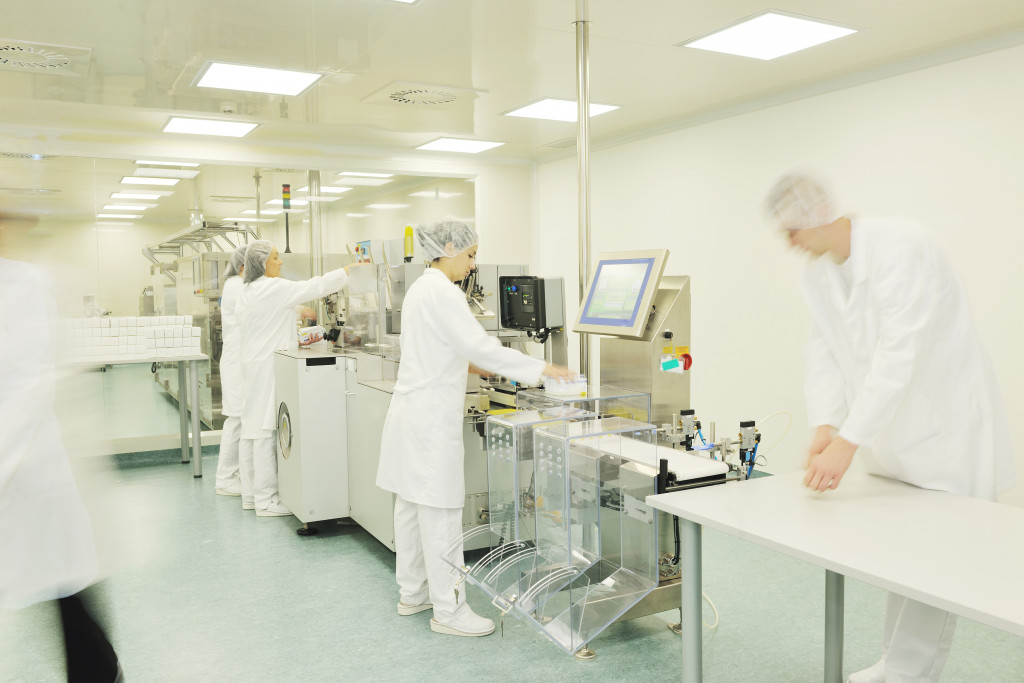- Proper cleaning is essential to preventing contamination and ensuring efficient production.
- Raw materials must be carefully selected and handled safely to prevent contamination.
- Quality control measures must be employed to guarantee product integrity.
- Manufacturers must comply with regulatory standards for safety and quality assurance.
- Continuous improvement of the manufacturing process is necessary to guarantee product safety.
Pharmaceutical manufacturing is a complex process that requires strict adherence to safety protocols. One mistake can lead to severe consequences, such as contamination, incorrect dosage, and even death.
This article will discuss the safety protocols to be followed while manufacturing medicinal products. These safety precautions are designed to ensure that the products produced are safe for human consumption and that the manufacturing process is as efficient as possible.
Ensuring Cleanliness
Cleanliness is of great importance in pharmaceutical manufacturing. To prevent contamination, every surface, tool, and machine used in the manufacturing process must be adequately cleaned and disinfected.
The business must also invest in modern solutions to create a safe and hygienic environment. For example, investing in pharmaceutical-grade flooring solutions such as epoxy coatings can help protect the area from contamination and germs.
This ensures that the products are of the highest quality and that safety protocols are always followed. But what are the advantages of guaranteeing cleanliness? Here are a few:
Regular Cleanings Prevent Disruptions
Preventing disruptions to manufacturing processes is vital, and cleanliness is essential. Unexpected shutdowns due to the cleaning of equipment and facilities can affect production schedules and profitability. These shutdowns can be avoided with a robust cleaning checklist that ensures that cleaning is done continuously so that the production line runs smoothly.
Effective Cleaning Saves Money
Cleanliness enhances the reliability and quality of the finished products. It leads to the ability to produce a higher quality product consistently. This, over time, leads to customer retention, improved reputation, and increased sales. Investing in proactive, advanced cleaning measures saves money in the long run, guarantees adherence to specific quality standards, and eliminates the real-world cost penalties associated with inconsistent production output.
Proper Handling of Raw Materials

Raw materials used to manufacture medicines must be carefully selected and tested for purity. They must also be stored in a secure and controlled environment to prevent contamination. Workers must follow strict procedures when handling raw materials, including using proper safety equipment, such as gloves and masks, and ensuring that all materials are carefully labeled and stored.
Maintaining Quality Control
Quality control is an essential part of pharmaceutical manufacturing. Manufacturers must ensure that their products meet all quality standards before they are released to the market. This requires extensive testing and product monitoring at every stage of the manufacturing process.
In addition, manufacturers must ensure that all machinery and equipment are properly calibrated and maintained to provide accurate dosing and quality control.
Ensuring Regulatory Compliance
Regulatory compliance is a vital responsibility that manufacturers must embrace to mitigate the potential risks posed by the production and distribution of dangerous drugs. Laws in the pharmaceutical industry impose strict standards and guidelines that ensure quality control, product safety, and patient welfare.
Environmental Regulations
Environmental regulations are equally important, and pharmaceutical manufacturers must ensure they do not contribute to releasing hazardous waste to the environment. The industry is subject to hazardous waste disposal standards that must be duly followed, and local or state regulatory authorities oversee the enforcement of these regulations.
Patient Safety
Patient safety is of paramount importance in pharmaceutical manufacturing. Adherence to regulations that guarantee product efficacy and safety is critical. Regulations demand that companies have a robust Quality Control and Assurance system, which controls risks affecting product quality and safety.
Record Keeping Procedures
Regulatory authorities demand that manufacturers maintain adequate record-keeping procedures to preserve the integrity of the Quality Control and Assurance information. The documentation of processes, test results, personnel records, and every aspect of supply chain management is essential for regulatory compliance.
Well-documented records facilitate efficient compliance auditing in the event of regulatory inspections and provide accountability for any issues that arise in the drug development process.
Continuous Improvement

The goal of every pharmaceutical manufacturer is to produce safe and effective medicines that improve the health and well-being of patients. Achieving this goal requires continuous improvement in the manufacturing process.
This means identifying areas for improvement and implementing changes that reduce the risk of contamination and improve the efficiency of the manufacturing process.
Final Thoughts
Pharmaceutical manufacturing is a highly complex process requiring strict safety protocol adherence. The safety precautions outlined above are just a few measures that must be taken to ensure that the products produced are safe for human consumption.
Manufacturers must also comply with regulations to ensure their products meet relevant health standards. By following these safety protocols, manufacturers can produce high-quality medicines that enhance the health of those who use them.
